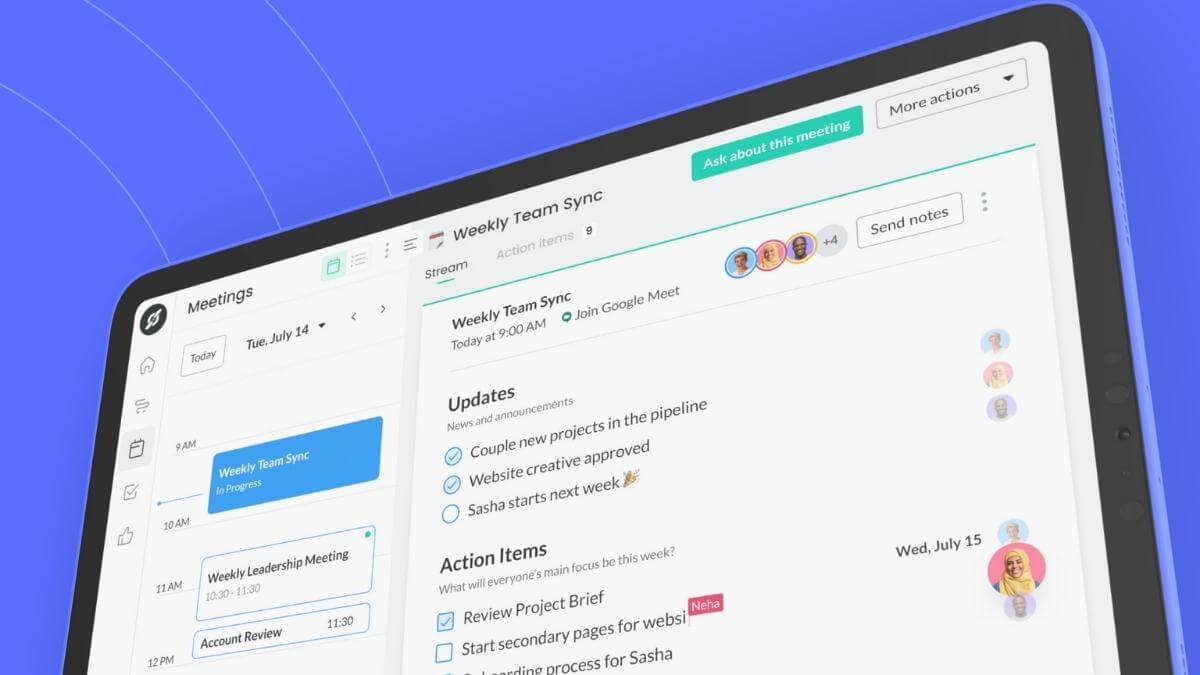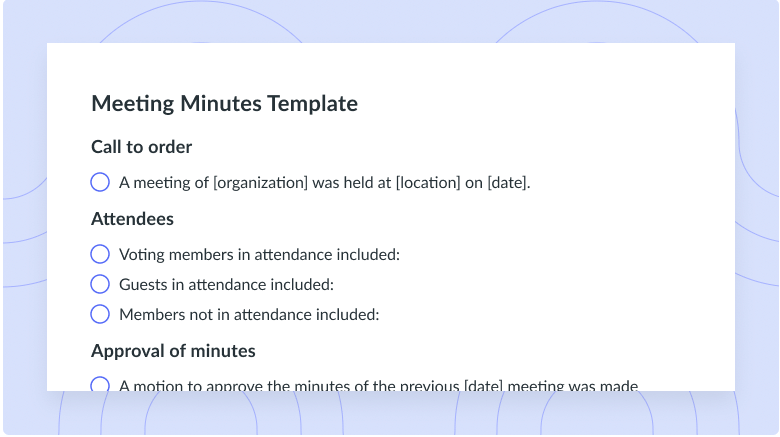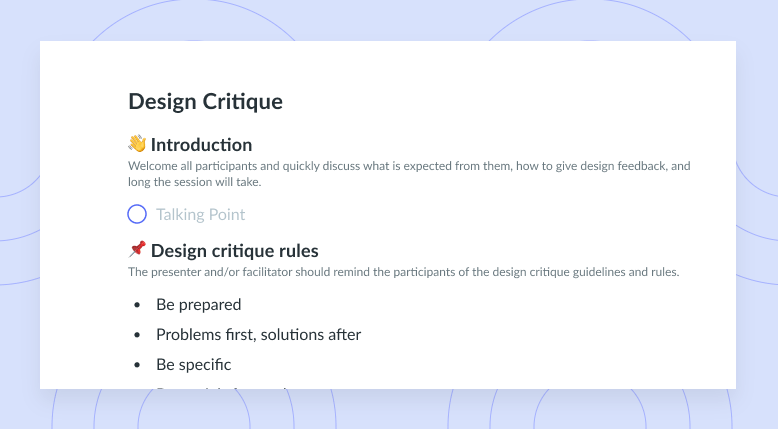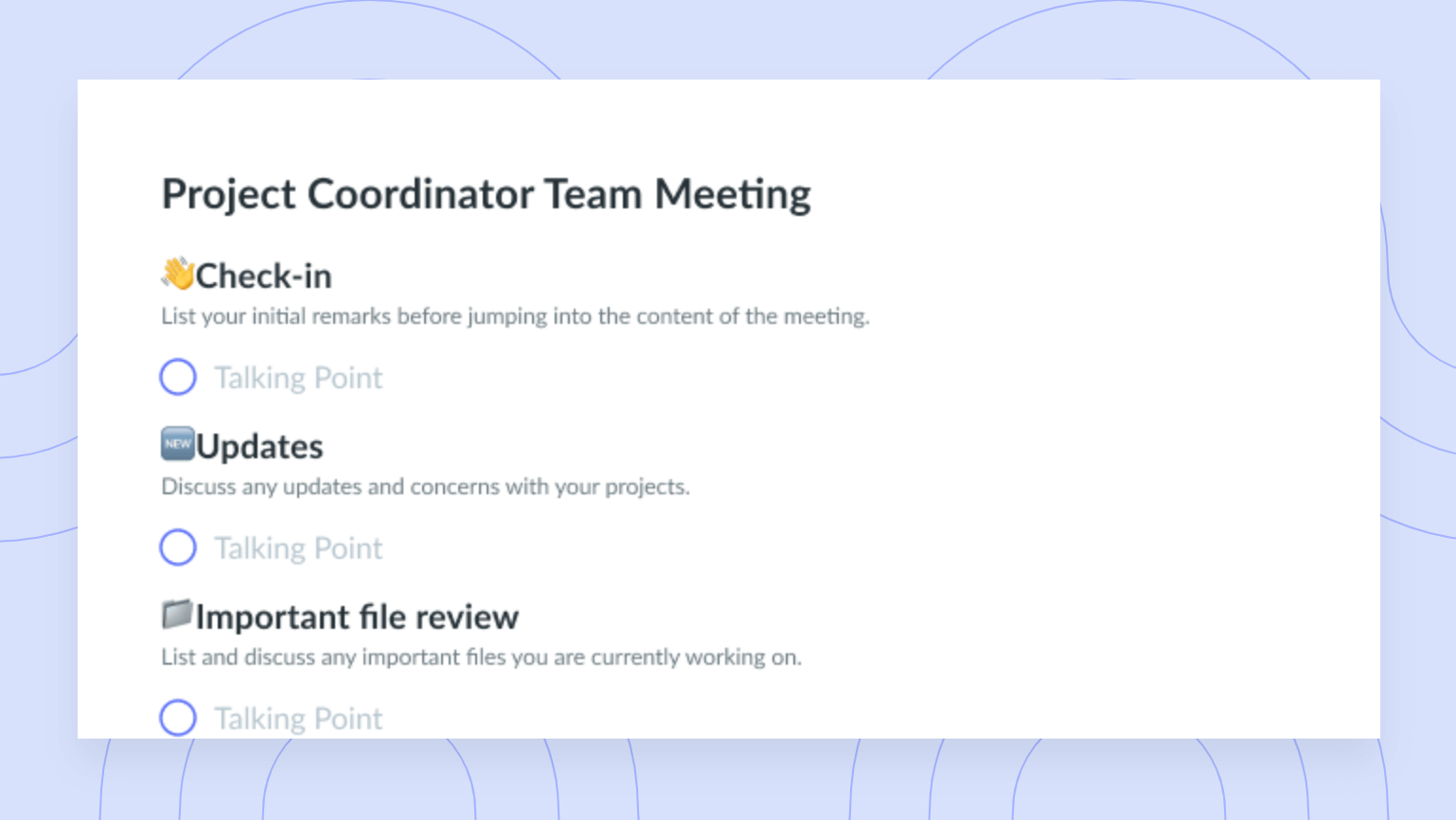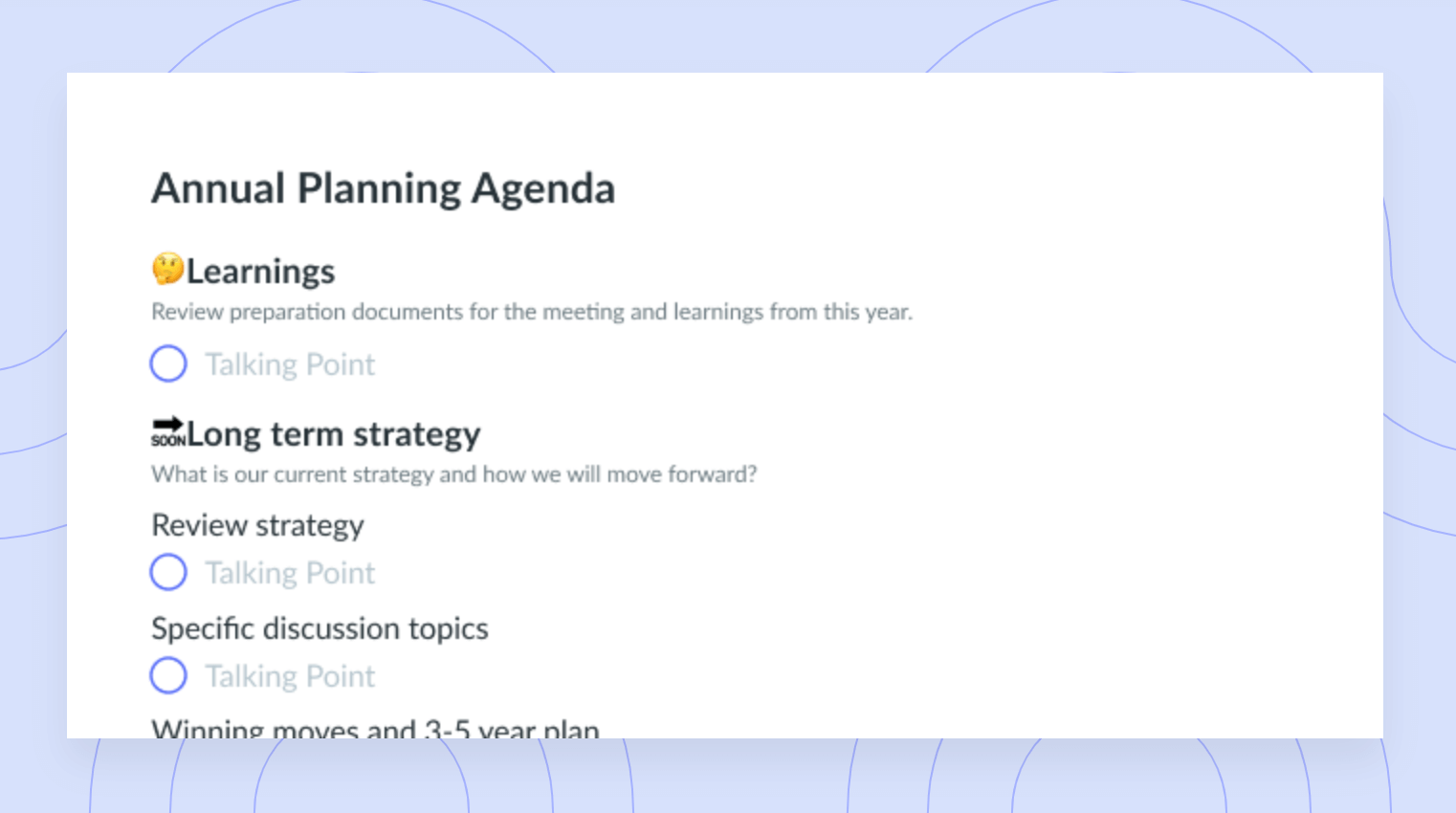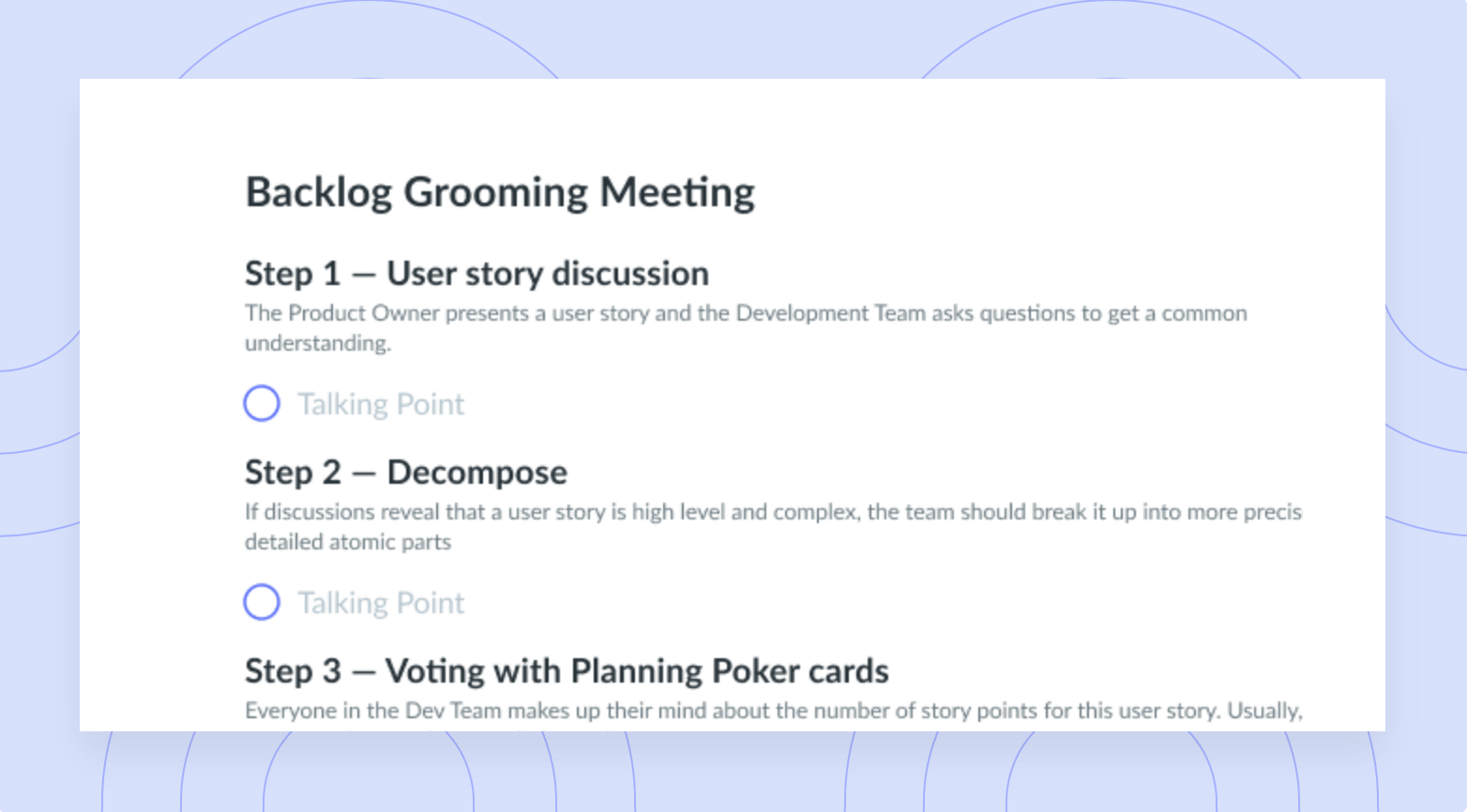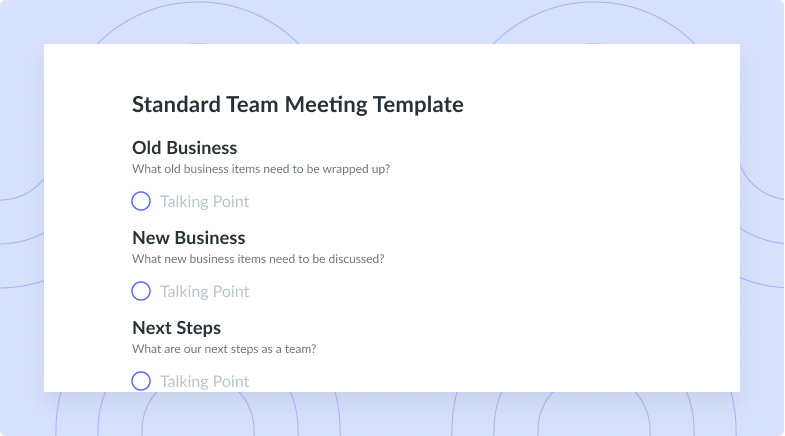How to Be a Good Project Manager + The Skills Needed to Succeed
A team can be its best with a great leader at the helm. Read on to learn valuable skills that can help you manage your next group project.
In terms of difficulty, learning how to be a good project manager lies somewhere between riding a bicycle and rocket science. Good leadership can come as naturally as breathing to some people, but others might need time to grow into it. There’s nothing wrong with a slow start, but since you’re reading this article, you probably want to bring your A-game to your next project. The in-depth guide below can teach you to do just that with valuable tips on leading your team like a pro.
- What makes a good project manager?
- How to be a good project manager
- How do you lead a successful project?
- Top 5 essential skills of a good project manager
What makes a good project manager?
The project manager is in charge of an entire project from start to finish, with a lot to keep track of at every step. Deadlines, assignments, meetings – it’s a lot. But you’re not doing the work alone. A good project manager relies on their team to complete a project on time and gives everyone the tools they need to succeed. It can really be that simple.

Level up your management skills
Level up your management skills by increasing meeting engagement and productivity with a collaborative agenda that the whole team can contribute to. Try using a tool like Fellow!
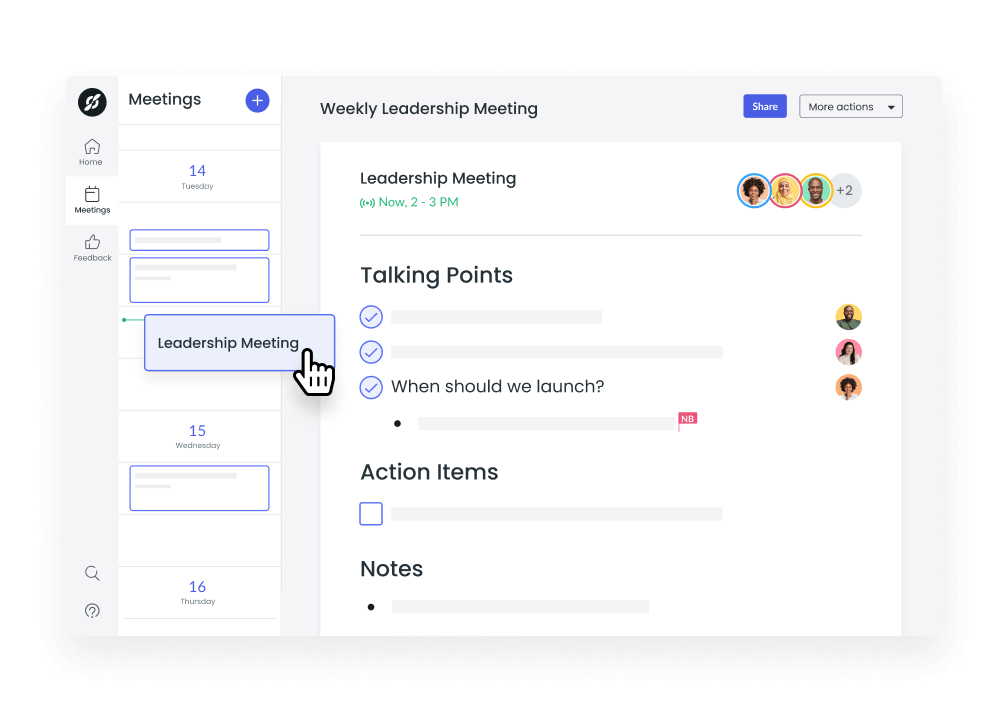
How to be a good project manager
It’s usually fairly easy to recognize what makes a good project leader. But even then, those traits come from something more fundamental: recognizing your team members’ value. And sure, maybe you’re skilled enough to complete your project alone. But doing so alongside a team typically leads to better results in a fraction of the time.
While that’s not all that goes into being a successful project manager, it’s a start – the rest is below.
- Be a better communicator
- Perfect your project planning
- Keep projects on schedule
- Be flexible with your team
- Make smarter decisions
- Manage your team’s work quality, not quantity
- Shift surface-level thoughts to critical thinking
1Be a better communicator
Something great project managers quickly recognize is how deeply team collaboration depends on effective communication. That’s not just between you and the team– it’s among all your team members. A good project manager will work to create an environment where everyone in the meeting room or the Slack chat feels comfortable sharing their ideas.
It stands to reason that you’ll do a lot of talking in most meetings. That said, you should always open the floor for your team to speak their minds. Doing so can make for smoother project planning and execution from start to finish. It can also help you improve based on the peer feedback you hear from your team.
2Perfect your project planning
Project planning is key to completing projects on time and with good results. But what exactly is project planning, and what do you need to do it well? You might get slightly different answers depending on who asks, but at the heart of most project plans is a goal. Without a clear objective, your team’s ideas and individual results are more likely to clash because they don’t have something to unify their work. A type of project management includes creative project management, it refers to project management within creative industries.
Setting project milestones is also a great way to see how close the project is to completion. Without that visual, your team only has your word to rely on, which isn’t ideal. If something changes or your project takes way longer than expected, everyone could wind up feeling exhausted. That can lead to a dip in morale and motivation that in turn leads to work that just isn’t as good.
3Keep projects on schedule
It’s a given that your project will have a deadline. As the project manager, it’s your responsibility to make sure everything goes done by then. For the most part, that’s easier said than done, simply because you can never predict every setback. Great project managers understand that sticking to the project schedule depends largely on expecting the unexpected – and reacting smartly.
4Be flexible with your team
If you don’t know exactly what to expect as you work on a project, your team probably doesn’t either. And getting upset when a team member hits a snag doesn’t help their work get done any faster – usually, it’s just the opposite. Instead, work with them to find where the root problem lies and help with whatever issue they’re facing. That flexibility can help your team perform at their best from start to finish.
5Make smarter decisions
To be clear, we’re not saying you’ve made dumb decisions up to this point. But managing projects has a broader scope than simply completing and turning in tasks. The best decisions are broad ones that benefit the project as a whole. That could mean changing some deadlines around or calling a meeting so your team can speak their minds. It’s all about making whatever choices keep the project on track in every way.
6Manage your team’s work quality, not quantity
Your team is your most valuable resource, and it’s up to you to place them in situations where they can do their best work. There’s only so much you can put on someone’s plate before the quality of their work starts to suffer. Good managerial and leadership skills involve recognizing each team member’s limits and adjusting their workload accordingly.
7Shift surface-level thoughts to critical thinking
Guiding any project often involves unexpected issues that call for in-depth problem-solving. That means that when there’s an issue, the first solution that pops into your head might not be the best. Your solutions and decisions will affect the entire project, so consider potential problems and solutions from every angle to find the right way.
How do you lead a successful project?
A successful project is one that’s turned in on time, within budget, and in high quality. A specific project might have more specific terms of success, but you get the picture.
Reaching the end of a project will require a few steps, so the most important thing you can do is to create structure. Keeping your team focused on the big goal ahead – and motivated to do their best – is another great way to reach the finish line.
Top 5 essential skills of a good project manager
A lot of factors go into being a good project manager – enough that keeping them in mind on the job can get pretty overwhelming. If remembering the actions you should take is a bit tricky, then you may have better luck remembering the skills you should have. To help you learn, we’ve listed some of the most important project management skills below.
- Communication skills
- Time management skills
- Problem-solving skills
- Leadership skills
- Management organizational skills
1Communication skills
There’s no getting away from it – you’ll have to talk with your team and higher-ups. Building team collaboration often depends on your ability to communicate project goals clearly. And over time, you’ll have to clearly explain your team’s progress to shareholders and executives.
2Time management skills
Time management is a huge part of project management. You and your team will be working toward a deadline, so the ability to break a project down into measurable milestones is key. Knowing what needs to get done and when while preparing for any potential setbacks is a sign of a great project manager.
3Problem-solving skills
Not every project will have some unforeseen issue that you’ll have to solve. Some will go smoothly the whole way through. But there’s always the potential for a problem to rear its ugly head and throw off the whole project. As the project manager, you have to be able to tackle even the most surprising of setbacks as soon as possible. Otherwise, you either risk the project stalling out or the finished product being of lower quality.
4Leadership skills
Leadership skills are a given for project management. But leadership and management aren’t quite the same, and you should know the difference so you can be both for your team. Leading means inspiring others to follow a clear vision for the best result. Managing, on the other hand, focuses on the day-to-day steps to meet that vision with the resources provided.
In project management, you’re responsible for both roles. While upper management might set the overall goal, it’s your job to motivate your team to do their best work. You’ll also have to set up the most efficient way to do it. That means you’re wearing both pairs of shoes.
5Management organizational skills
Being organized is key to any project’s success – that’s why you see “well-organized” and “attention to detail” in so many job descriptions. When you build these skills, you can easily break a larger project down into easier, smaller parts. Plus, a big part of managing and organizing is holding meetings – the meeting room is often where a big part of project planning takes place.
Go above and beyond with your next project
Being a good project manager isn’t an easy task, and the role will often ask a lot of you, but it’s far from impossible. The above tips on how to be a good project manager can get you where you’re going. They’re great starting points for growing into your responsibilities or building on what you’ve already learned.
Beyond that, there are plenty of project management tools available to help you with your next project. Fellow, for example, is a professional meeting program that can help you structure your project planning meetings and status meetings. With tools such as collaborative agenda creation, shared notepads, and real-time meeting action items and feedback, you can successfully manage any project.




![How to Run a Delightful AGM [+ Free Template]](https://fellow.app/wp-content/uploads/2022/07/How-to-Run-a-Delightful-AGM-2.jpg)
